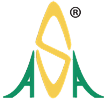Antimicrobial susceptibility test (AST) results are among the most important results issued by the microbiology laboratory as they routinely guide critical treatment decisions. With increasing rates of antimicrobial resistance, new antimicrobial agents, and changes to breakpoints by EUCAST and CLSI, a national AST committee has an important role to provide a resource for laboratories to seek assistance and provide feedback to.
Originally established in mid-2011 to provide expert advice and further the cause of skill development in the area of antimicrobial susceptibility testing, the Australian Committee on Antimicrobial Susceptibility Testing, AUSCAST (previously known as the ASA National EUCAST AST Committee, AusNAC) is the affiliated national committee within the European Committee on Antimicrobial Susceptibility Testing (EUCAST) network (http://www.eucast.org/organization/nac/). In 2024, ASA has endorsed a new committee structure to support Australian laboratories that perform and report AST results, which is inclusive of different breakpoint references (e.g., EUCAST and CLSI). This committee has adopted the name ‘AUSCAST’.
In order to increase the reach and impact of the committee, the upgrade and rebrand the committee now includes a formal structure with an Executive (chair, scientific secretary, education officer), 8 general members (applications received from the ASA membership), and 4 co-opted members (representing New Zealand, AGAR, APAS and Pharmacy). Positions will be held for 2-year terms with a chance to renew twice more.
AUSCAST will undertake a number of key roles throughout the year, including:
- Organising the AST workshop at the ASA annual meeting
- Act as the central point-of-contact to support diagnostic laboratories with AST questions
- Provide educational content in basic and advanced aspects of AST, including regular articles in the ASA Breakpoint quarterly newsletter
Furthermore, AUSCAST will endeavour to provide additional national services, including:
- Developing national AST resources including guidelines, advice documents, and a library of AST comments for final AST reports
- Coordinating multi-laboratory projects and studies
- Provide input and formal responses for general consultation documents sent out by EUCAST
- Disseminating alerts and warnings from EUCAST and CLSI
AUSCAST will also discuss topics and questions asked of the committee from laboratories, and, if possible, provide feedback, guidance or commentary to be available for all.
The Society conducts national annual scientific meetings and has hosted the Asian Pacific Conference on Clinical Microbiology and Infectious Diseases and the International Symposium on Staphylococci and Staphylococcal Infection. It actively supports research into antimicrobials and antimicrobial resistance.
Executive
| Iain Abbott | Chair | Alfred Health, VIC |
| John Turnidge | Scientific Secretary | EUCAST, SA |
| Indy Sandaradura | Education Officer | Westmead, NSW |
General Members
| Teresa Abajo | Scientist | Alfred Health, VIC |
| Sandy Allinson | Scientist | Sullivan Nicolaides, QLD |
| Sandra Jones | Medical | Wollongong, NSW |
| Michael Leung | Medical | PathWest, WA |
| Norelle Sherry | Medical (Public Health) | MDU, VIC |
| Robert Stevens | Medical | St George Hospital, NSW |
| Sanchia Warren | Medical | Royal Hobart, TAS |
| Brooke Webb | Scientist | Monash Health, VIC |
Co-opted Members
| Julia Howard | New Zealand AST Committee |
| Lou Cooley | Australian Group on Antimicrobial Resistance (AGAR) |
| Sonali Coulter | Australian Passive AMR Surveillance (APAS) |
| Kelly Cairns | Pharmacy |
AUSCAST looks forward to working with all laboratories in Australia to help provide best-practice AST testing and reporting. If you are interested in AST, or have questions, observation, suggestions, or have encountered problems in your laboratory, please contact AUSCAST via auscastasa@gmail.com.
